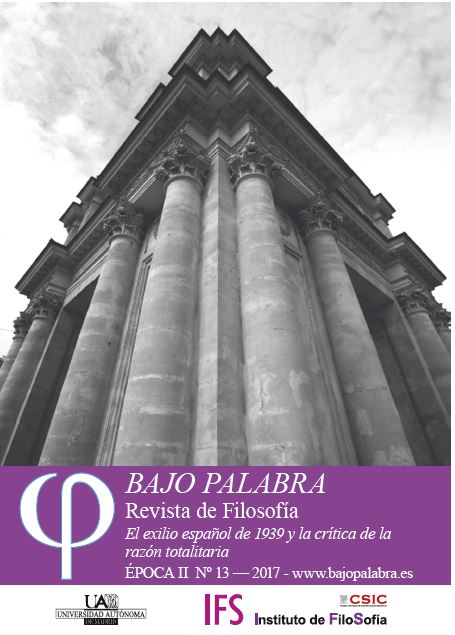Artículos
Publicado
marzo 1, 2017
Palabras clave:
Gaos, Modernidad, totalitarismo, crisis, filosofía contemporánea, tecnología, publicidad
Cómo citar
Sevilla Segura, S. (2017). Gaos, intérprete de la modernidad como totalitarismo. Bajo Palabra, (13), 47–59. https://doi.org/10.15366/bp2017.13.003
Derechos de autor 2017 Sergio Sevilla Segura

Esta obra está bajo una licencia internacional Creative Commons Atribución 4.0.
Resumen
Este artículo investiga, especialmente en los materiales inéditos del archivo de Gaos, la noción de totalitarismo como diagnóstico de su época. Gaos considera que a la modernización como proceso de laicización, tecnificación y degradación del sujeto y del vínculo social, se añaden los efectos de la guerra civil, el nazismo, el estalinismo, y el diagnóstico orteguiano de la “rebelión de las masas”; con ello, el totalitarismo, adquiere un alcance antropológico más que político.
Descargas
Los datos de descargas todavía no están disponibles.
